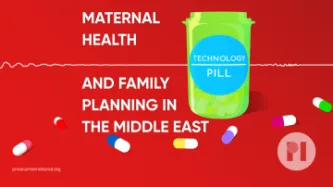Search
Content type: Long Read
IntroductionHarnessing new digital technology to improve people’s health is now commonplace across the world. Countries and international organisations alike are devising digital health strategies and looking to emerging technology to help solve tricky problems within healthcare. At the same time, more and more start-ups and established tech companies are bringing out new, and at times innovative, digital tools aimed at health and wellbeing.
Content type: Advocacy
In August 2023, the UK Westminster Women and Equalities Committee launched a call for evidence into a short inquiry on women’s reproductive health.We submitted a response highlighting the increasing management of women’s reproductive healthcare through digital health initiatives. We raised concerns that these technologies can be privacy-invasive and result in highly sensitive personal information being shared in unexpected and potentially dangerous ways. We encouraged the Committee to ensure…
Content type: Long Read
IntroductionData about our health reveals some of the most sensitive, intimate - and potentially embarrassing - information about who we are. Confidentiality is, and has always been, at the very heart of medical ethics. People need to be able to trust their doctors, nurses and other healthcare providers so that they are not afraid to tell them something important about their health for fear of shame, judgement or social exclusion.It’s no surprise then that data protection regimes around…
Content type: Long Read
Introduction
The 28th of September marks International Safe Abortion Day. It remains a day necessary to mobilise and raise awareness of the continued struggles women and girls face when accessing reproductive healthcare, including access to safe abortion. Across the world, abortion continues to be criminalised, restricted and in some places under attack. All of which constitute severe obstacles for women and girls to fully exercise their human rights, particularly their right to privacy, which…
Content type: Advocacy
Privacy International contributed to the UNSR's report by submitting information on the work we have done as well as our Network of partners as we’ve monitored and responded to developments associated with the use of data and technology in the health care sector by governments and companies.
Content type: Advocacy
PI welcomes the opportunity to engage once again with the mandate by submitting comments, evidence, and recommendations to the UN Special Rapporteur on the right to health, Ms. Tlaleng Mofokeng. We hope that our input will contribute to the forthcoming report, “Digital innovation, technologies and the right to health”.
Technology has contributed significantly to the planning and delivery of health information, services and care. We have seen the use of data and technology across the healthcare…
Content type: Examples
Following the US Supreme Court's Dobbs decision that paved the way for states to enact legislation criminalising abortion, health advocates warn that the surveillance software schools use to algorithmically monitor students' messages and search terms could be weaponised against teens looking for reproductive health care. These systems can automatically alert school administrators, parents, or police when they detect "dangerous behaviour", which may include anything from imminent suicide…
Content type: Video
Nour El Arnaout is a division manager at the Global Health Insitute at the American University of Beirut, where she also co-ordinates the Institutes's E-Sahha programme focussed on e-health and digital health. She has more than 7 years experience in projects and programmes management, operational management and research, and leads the implementation of large scale field based projects in underserved communities in Lebanon including refugee settlements. She is working on a project called: The…
Content type: News & Analysis
The relationship between privacy and access to abortion care
In 1973, in the state of Texas, it was a criminal offence to “procure or attempt” an abortion except if the purpose was “saving the life of the mother.” This law was enacted in 1854 by the Texas state legislature, and was part of a wave of provisions criminalising access to abortion care that was gaining ground across the U.S in the mid-1800s. It is worth highlighting that these laws were being passed at a time when women in the U.S…
Content type: Long Read
In the wake of the recent news of the US Supreme Court’s decision to overturn the ruling of Roe v Wade in its ruling in Dobbs v Jackson Women's Health Organization, headlines have been dominated by conversations around privacy and fears of how the criminalisation of abortion care and surveillance by law enforcement will play out in a tech driven world.
This discussion is increasingly important as governments move towards digitising their healthcare systems and as more individuals choose to…
Content type: Long Read
This piece is a part of a collection of research that demonstrates how data-intensive systems that are built to deliver reproductive and maternal healthcare are not adequately prioritising equality and privacy.
Digital health apps of all kinds are being used by people to better understand their bodies, their fertility, and to access health information. But there are concerns that the information people both knowingly and unknowing provide to the app, which can be very personal health…
Content type: Long Read
This piece is a part of a collection of research that demonstrates how data-intensive systems that are built to deliver reproductive and maternal healthcare are not adequately prioritising equality and privacy.
What are they?
Short Message Services (SMS) are being used in mobile health (MHealth) initiatives which aim to deliver crucial information to expecting and new mothers. These initiatives are being implemented in developing countries experiencing a large percentage of maternal and…
Content type: Long Read
For over 20 years with the start of the first use of ICTs in the 1990s, we have seen a digital revolution in the health sector. The Covid-19 pandemic significantly accelerated the digitalisation of the health sector, and it illustrates how fast this uptake can be and what opportunities can emerge; but also, importantly, the risks that it involves.
As we've said many times before, whilst technologies can be part of the solution to tackle some socio-economic and political challenges facing our…
Content type: Long Read
Image found here.
Founded in 1959, Bounty UK Limited markets itself as an information service for pregnant women and new mothers. Prior to the pandemic, it was best known for distributing “Bounty packs” of free samples of baby products to pregnant women at midwife appointments, to new mothers on maternity wards in the UK and through its digital presence via its website and app. Bounty representatives also sold new born photography packages to new mothers at the hospital bedside. Bounty entered…
Content type: Long Read
India’s Mother and Child Tracking System (MCTS) is a system that collects vast amounts of data about pregnant people, children, and families. It is an initiative by the Ministry of Health and Family Welfare in India, and was first trialled in 2009. It was then rolled out nation-wide in 2011. Its declared purpose, as stated in the press release accompanying it, was to facilitate “ensuring timely delivery of full spectrum of health care services to pregnant women and children up to 5 years of age…
Content type: Long Read
In 2019, we exposed the practices of five menstruation apps that were sharing your most intimate data with Facebook and other third parties. We were pleased to see that upon the publication of our research some of them decided to change their practices. But we always knew the road to effective openness, transparency, informed consent and data minimisation would be a long one when it comes to apps, which for the most part make profit from our menstrual cycle and even sometimes one’s desire to…
Content type: Video
Dr. Andrea Swartzendruber is the principal investigator for the Pregnancy Resource Center Evaluation at Emory University's Center for Reproductive Health Research in the Southeast. She is an assistant professor in the Department of Epidemiology and Biostatistics at the University of Georgia College of Public Health and an adjunct professor at Emory University Rollins School of Public Health. She has recently published and presented research findings on pregnancy resource centers (also known…
Content type: News & Analysis
Abortion without privacy guarantees is not safe abortion.
Safe access to abortion is far from guaranteed throughout the world. And in many countries, there are groups working hard to make sure that safe access to this vital component of reproductive healthcare remains out of reach.
Online platforms are the new arena of anti-reproductive advocacy, and those opposed to reproductive rights are increasingly deploying digital, data-exploitative strategies. By using and developing digital…
Content type: Advocacy
Privacy International responded to a call for submissions of the Working Group on Discrimination Against Women and Girls on the sexual and reproductive health and rights of women and girls in situations of crisis.
This submission builds on PI’s research highlighting the ways in which data exploitative technologies can obstruct the realisation of sexual and reproductive rights, and research carried out by our partners on the specific manifestations of these obstacles in multiple countries of…
Content type: Video
Find out more here: https://privacyinternational.org/long-read/3669/documentation-data-exploitation-sexual-and-reproductive-rights
You can listen and subscribe to the podcast where ever you normally find your podcasts:
Spotify
Apple podcasts
Google podcasts
Castbox
Overcast
Pocket Casts
Peertube
Youtube
Stitcher
And more...
Content type: Advocacy
Privacy International and Hiperderecho made a joint submission to the UN Committee on the Elimination of all Forms of Discrimination Against Women (CEDAW) ahead of the Committee finalising the list of issues for the examination of Peru.
The submission builds on research commissioned by Privacy International and carried out by Hiperderecho on the state of reproductive rights in Peru, and how their exercise intersects with privacy and tech.
The submission is available in…
Content type: Video
This podcast is part of a special series from PI's Reproductive Rights and Privacy Project.
The series comes out on the last Monday of every month.
You can listen and subscribe to the podcast where ever you normally find your podcasts:
Spotify
Apple podcasts
Google podcasts
Castbox
Overcast
Pocket Casts
Peertube
Youtube
Stitcher
and more...
Content type: Long Read
1. What are the barriers to access safe and legal abortion care?
Abortion is considered a crime in Brazil, except in cases of pregnancy resulting from rape, when it puts the woman's life at risk or, most recently, in cases of fetal anencephaly. Article 273 of the Penal Code also forbids the sale or distribution of medication that is not registered at Anvisa (National Health Agency), which is the case for abortion pills in Brazil. Misoprostol, the active substance of abortive medicines in the…
Content type: Long Read
1. What are the barriers to access safe and legal abortion care?
The Indian state’s approach to reproductive rights historically has focused on population control rather than enhancing individual autonomy and removing structural barriers to reproductive health services, which is reflected in the barriers to provision of services. As a consequence of the early adoption of family planning and population control measures in the 1950s, India was one of the first countries to legislate on abortion…
Content type: Long Read
This research was commissioned as part of Privacy International’s global research into data exploitative technologies used to curtail women’s access to reproductive rights. Reproductive Rights and Privacy Project. Read about Privacy International’s Reproductive Rights and Privacy Project here and our research findings here.
1. What are the barriers to access safe and legal abortion care?
In Kenya, access to abortion care is restricted by the Constitution, which provides that: “…
Content type: Long Read
This research was commissioned as part of Privacy International’s global research into data exploitative technologies used to curtail women’s access to reproductive rights.
Read about Privacy International’s Reproductive Rights and Privacy Project here and our research findings here.
1. What are the barriers to access safe and legal abortion care?
Even though abortion is legal in certain cases in Argentina, different types of barriers restrict the access to legal abortions, contribute…
Content type: Long Read
This research was produced by Paz Peña as part of Privacy International’s global research into data exploitative technologies used to curtail women’s access to reproductive rights. Reproductive Rights and Privacy Project. Read about Privacy International’s Reproductive Rights and Privacy Project here and our research findings here.
1. What are the barriers to access safe and legal abortion?
According to figures from the Ministry of Health, more than 33 thousand clandestine abortions are…
Content type: Long Read
This research was commissioned as part of Privacy International’s global research into data exploitative technologies used to curtail women’s access to reproductive rights.
Read about Privacy International’s Reproductive Rights and Privacy Project here and our research findings here.
1. What are the barriers to access safe and legal abortion care?
Legal barriers
To identify the barriers experienced by women to access safe and legal abortion care, we have to understand the legal picture…
Content type: Long Read
This research was commissioned as part of Privacy International’s global research into data exploitative technologies used to curtail women’s access to reproductive rights. Reproductive Rights and Privacy Project. Read about Privacy International’s Reproductive Rights and Privacy Project here and our research findings here.
























